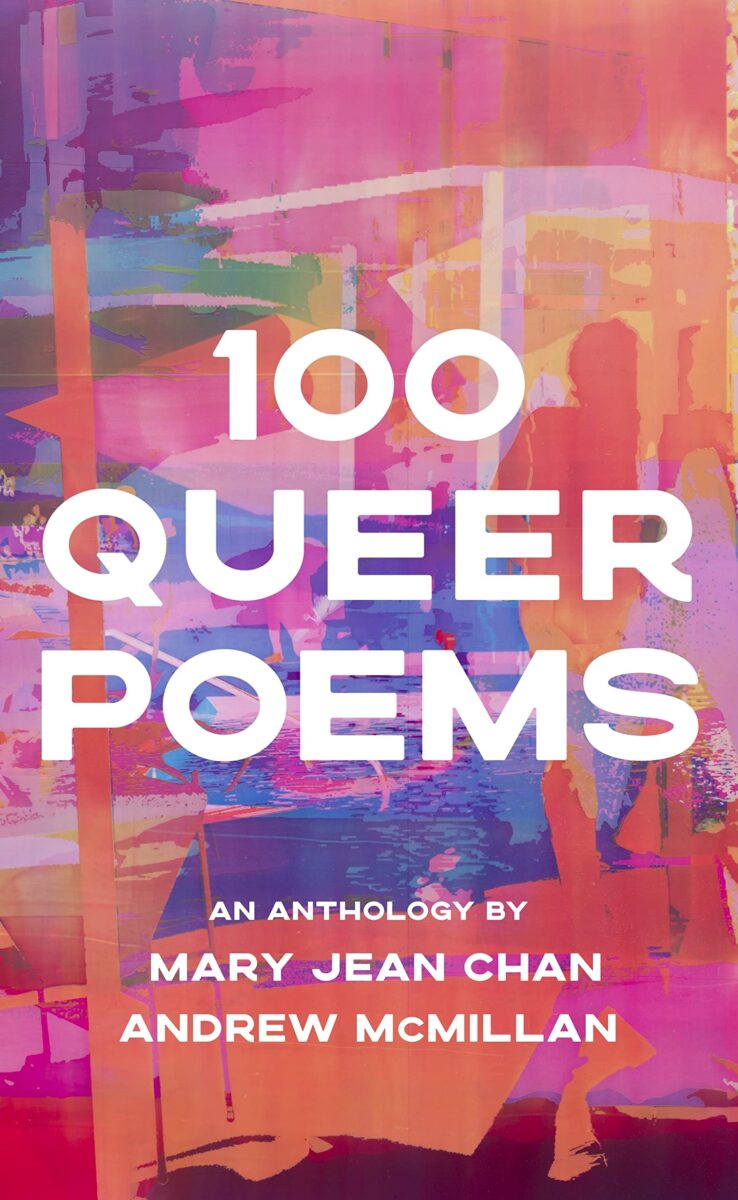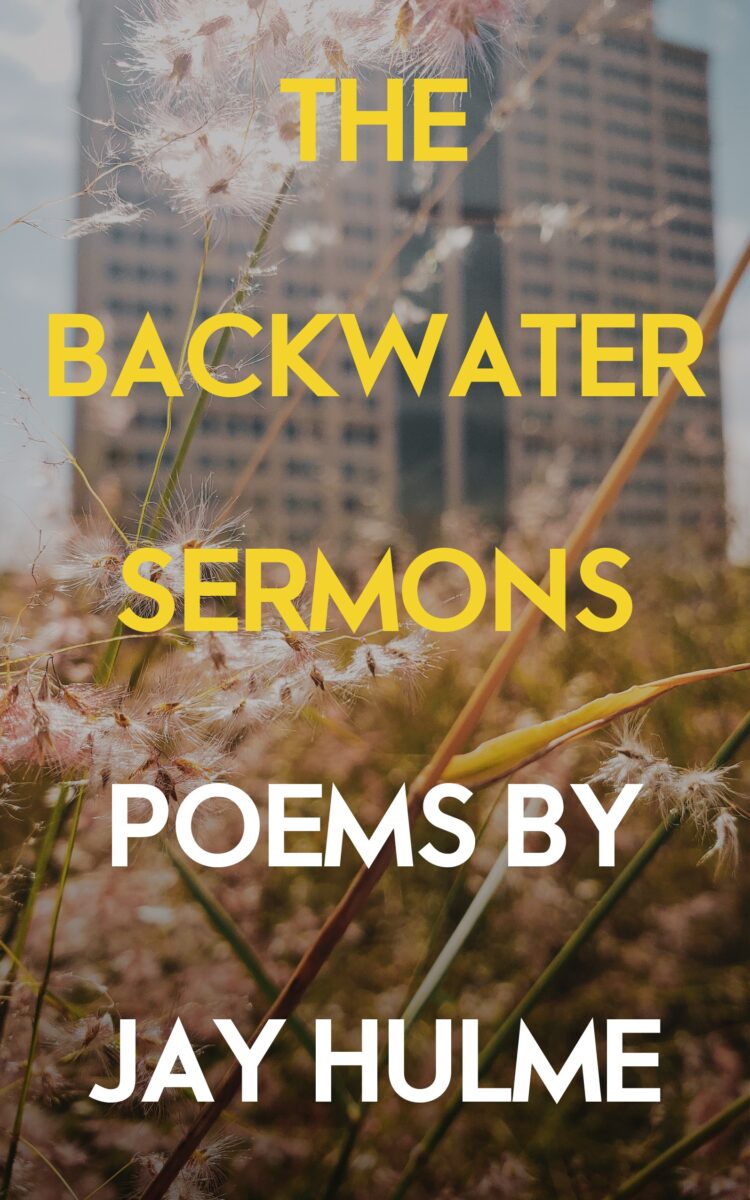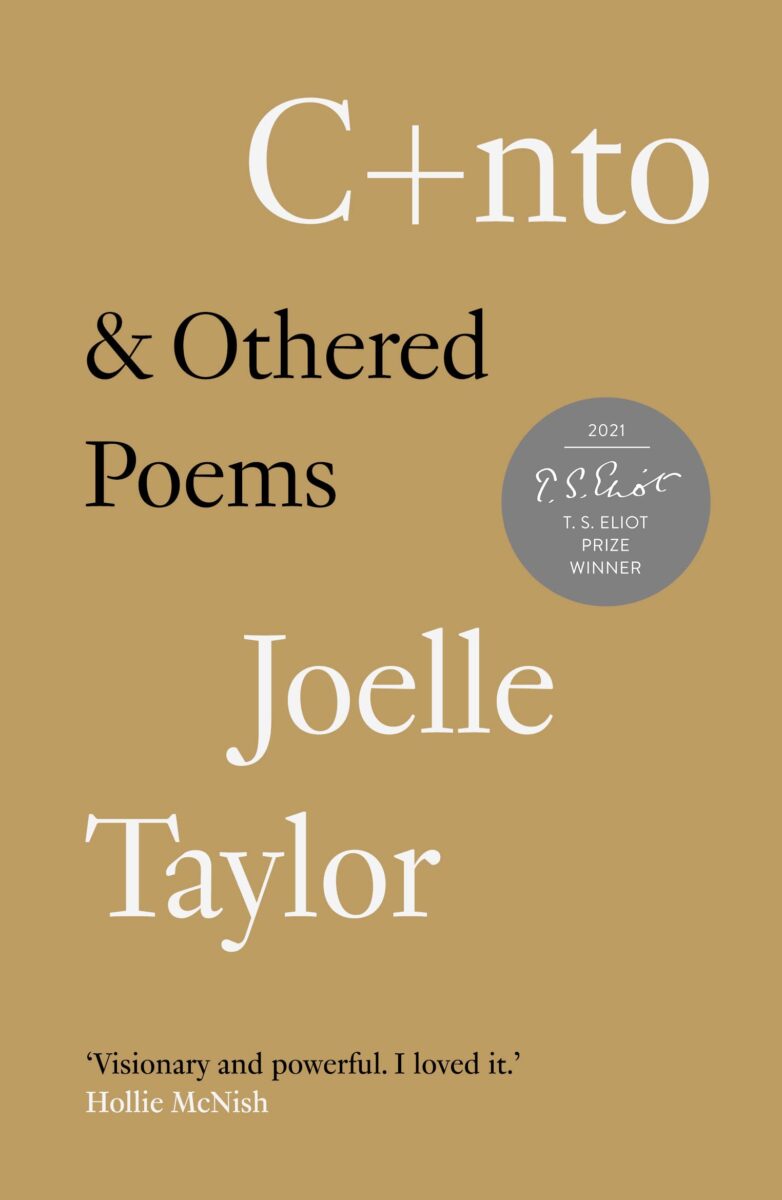Source > Rowntree Editing
Poetry is a form of writing well placed to capture the liminal, achieving this because poems are suggestive, connotative, operating from a space of ambiguity in William Empson’s sense (connoting conflicts within the author). Oppression and repression are enforced liminality; to be at the margins is to live within marginalia, the outside commentary on the primary text, made tertiary, but open to reinterpreting the primary meanings that exclude it. It is to live within the ellipses of poems, where meaning needs to be worked out.
Therefore, poetry and queerness go together. Here I will look at three collections that demonstrate this striking complementarity between subject and medium. The first is an anthology of old and new queer verse, and it includes poems by the authors of the other two volumes: Jay Hulme and Joelle Taylor. All three books are remarkable achievements, uncovering different facets of queerness, its tensions, contestations and pluralities.
100 Queer Poems
in your body, alone and rushing forward all the time
—John McCullough, ‘The Zigzag Path’
Karl Knights’s ‘First Meeting’ assesses the common intersection of neurodiversity—here, autism—and queerness. So that meeting another autistic person is a way to explore the often strange and wonderful newness of queer encounters, ‘When the bell rang neither of us knew how to leave.’ Golnoosh Nour’s ‘Hiraeth’ looks at the different interactions between queerness and race, and how each is excluded, shut out, ‘thrilled to be tolerated, the sparkling promise/ of whiteness.’ These are only two examples of how the poetry of Mary Jean Chan and Andrew McMillan’s edited anthology 100 Queer Poems traverses complex nuances in queer life through the expansive capacities of verse.

The different sections of the book examine yet more facets of queerness: Childhoods and Adolescence, Domesticities, Relationships, Landscapes, the City, Histories, and Futures. In Caroline Bird’s one stanza ‘Spat’ all of the subtext of an argument is allowed to unravel out on the page, reordering a throwaway and seemingly mundane piece of dialogue. It is emblematic of the coded, clever, tense handling of queer relationships in many of these poems, where everything stands in lieu of something else.
‘It’s me or the dog’, she laughed, Though by ‘dog’, she meant ‘void’, And by ‘laughed’ I mean ‘sobbed’ And by ‘me’ she meant ‘us’ And by ‘she’ I mean ‘you’ And by ‘or’ she meant ‘and’. ‘It’s us and the void’, you sobbed.
As someone currently undergoing vocal feminisation, I was moved deeply by the line ‘Queer voices cut through unsafe spaces in curves.’ This comes from Nathan Walker’s ‘Carrying in the Mouth: Excerpts’. There is something here for so many of us relegated to the margins of social experiences, whether that relates to gender or to sexuality. So many of these poems are intensely but unexpectedly relatable.
Matthew Haigh’s ‘Vintage Barbie Chest of Draws’ for instance, has the voice of the poem relate a gender non-conforming love of the titular doll toys in terms of a purely sensory joy. That is, the pleasure taken in ‘the click of a tiny draw in a tiny cabinet.’ Such tactile, delicate moments speak to how textured queer existence is, against the dull and lifeless abstractions of those who hate us every new piece suggests worlds of longing and feeling.
The final section is Queer Futures, Diana Bellessi’s ‘Little Butterflies’ exemplifies this part of the book, one suffused with loss and possibilities, ‘I am a girl again, now/ in my seventies’. It interestingly mirrors the penultimate section, Queer Histories, where Kei Miller’s ‘The Law Concerning Mermaids’ deploys the age-old metaphor of mermaids for queerness to examine how ostracising the other becomes a form of diminishing everyone.
Miller’s humour belies the darker subtext. ‘My friend thinks/ it is a wondrous thing—that the British Empire was so thorough/ it had invented a law for everything.’ The mermaids, however, retaliate, so that they will ‘never again lift their torsos up from the/ surf; never again wave at sailors, salt dripping from their curls;/ would never again enter the dry and stifling world.’
100 Queer Poems is a glimpse of the world that has been lost, to colonialism and misogyny and racism and the hatred of the queer, but also one that begs to be renewed.
The Backwater Sermons
This collection reflects the pain, and the beauty, and the strange perspectives I have gained through being a ‘Plague Christian’. Of having to find God everywhere, and in everything, during a time of incredible difficulty. Of seeking grace in agony, and finding it in abundance. Of calling out to God in anguish, and being confronted by limitless love. Of the beauty, and possibility, and wonder that can be found—even in such terrible times.
Describing himself as a Plague Christian because he converted during the Coronavirus-19 Pandemic, previously Jay Hulme considered himself ‘too poor, too queer, too dodgy’ to enter the churches and cathedrals to which he felt an architectural and, it transpired, spiritual affinity. But it is against a terrible interruption that he discoverers a Christianity for him, while the ‘world is paused./ Death stalks the streets on wisps of breath./ Our homes are our refuge and our jailers.’

The Backwater Sermons are an account of one trans man and poet’s unique relationship to his Anglican faith, as well as to his sexuality and gender identity. In the poem ‘God is a Capitalist’ he fleshes out the nature of this faith, one in keeping with Jesus’s radicalism—the kind of radicalism Terry Eagleton outlines in his introduction to Verso’s edition of The Gospels.
This is a faith in which the notion of a God of injustice and nukes is ‘based on old/ mistranslations.’ Instead, we find a God that encompasses a queer salvation. ‘If God is everywhere, then everywhere is holy,/ everything is holy, everyone is holy.’ ‘Love everyone as if everyone is holy,/ as if everyone’s intrinsically worthy’. Hulme finds queer icons within his faith tradition, with pieces such as ‘Seeking Trans Ancestors in Old Provincial Graveyards’, ‘In Search of St Sebastian’, and ‘“Queer” is a Calling’.
One of these poems, ‘Jesus at the Gay Bar’, inspired me to read the collection when I encountered it on social media. Here, the titular speaks to a boy in the final stanza:
my beautiful child there is nothing in this heart of yours that ever needs to be healed.
It is a powerful moment, and this collection is a powerful witness to the revelation it contains.
C+nto & Othered Poems
there is a lock & the lock is also the key & what you need to do is turn yourself.
An epigraph from a poem towards the conclusion of Joelle Taylor’s C+nto & Othered Poems points to the Anti-gay purges in Chechnya of 2017 with a last ‘social media post from a local LGBT group’ that went, ‘I ask all that are still at liberty, to take this message seriously and flee the republic as soon as possible.’ These words, and so many examples of atrocities, historical and contemporary, haunts every page.
In 2022, the year after Taylor won the T. S. Eliot prize for this book, the U.S. government warned that Russia had a ‘kill list’ of Ukrainians to be detained or killed that included LGBTQ people. ‘It is against this backdrop of rising global homophobia, transphobia and misogyny that this book is written.’ That is, Taylor wished ‘to both acknowledge the crimes against the LGBT community and reflect back to a time when we had a greater sense of unity, of self.’ On the second point she is clear of the urgent need for a unity of LGBTQ+ people in an age of digital alienation and difference:
We inhabit separate clubs. If we were to regain the real-life meeting grounds, if we were to be in the same room, then perhaps we would remember our commonality. The internet celebrates difference. The club celebrates unity. In these distinct spaces we learn to protect one another.
The poetry is not directly about that unity. It is about the experiences of the lesbian butch counterculture in the 90s. But that drive for a solidarity of experience is replete in the ways in which Taylor describes those more specific experiences. Poetry is so suited to carving out a space of universal humanity from highly specific perspectives in the world, for creating an empathy freed of the trappings of cliché and sentiment. We are given a glimpse of moments, encounters, of people as ‘They conference the night.’ Of a woman whose ‘fear is/ a dress she can no longer/ fit into.’ And of those for whom, ‘my gender / is exile.’

Belonging and not belonging are returned to over and over again. One poem asks, ‘How do we fit into your algebra/ your binary code?’ Not only does this verse examine the outcast dimensions, but intrusions on the territories the outcast make for themselves, of how ‘rainbows become corporate logos’.
But Taylor does not stop at exile. She is drawn to the ways in which experience remakes a person, and how their agency involves itself in this process, ‘bois are almost all water/ in the act of becoming’. Struggle, here, is an active and transformational current; paraphrasing Nietzsche, ‘What does not kill you makes you/ make you.’
Transformation
Poetry has the power to communicate the intricacies of internal worlds, especially internal worlds given little visibility and acceptance by official channels. Poetry is spiritual, it is shapeshifting, and it is queer. These three books stand alongside so many countless others, testifying to the ability of verse to communicate the margins.
Art Book Review Books Capitalism China Climate Emergency Conservative Government Conservative Party COVID-19 Creeping Fascism Economics EcoSocialism Elections Europe Event Video Far-Right Fascism Film Film Review France Gaza Global Police State History Imperialism Israel Italy Keir Starmer Labour Party London Long Read Marxism Marxist Theory Migrants NATO Palestine pandemic Protest Russia Solidarity Statement Trade Unionism Trans*Mission Ukraine United States of America War

